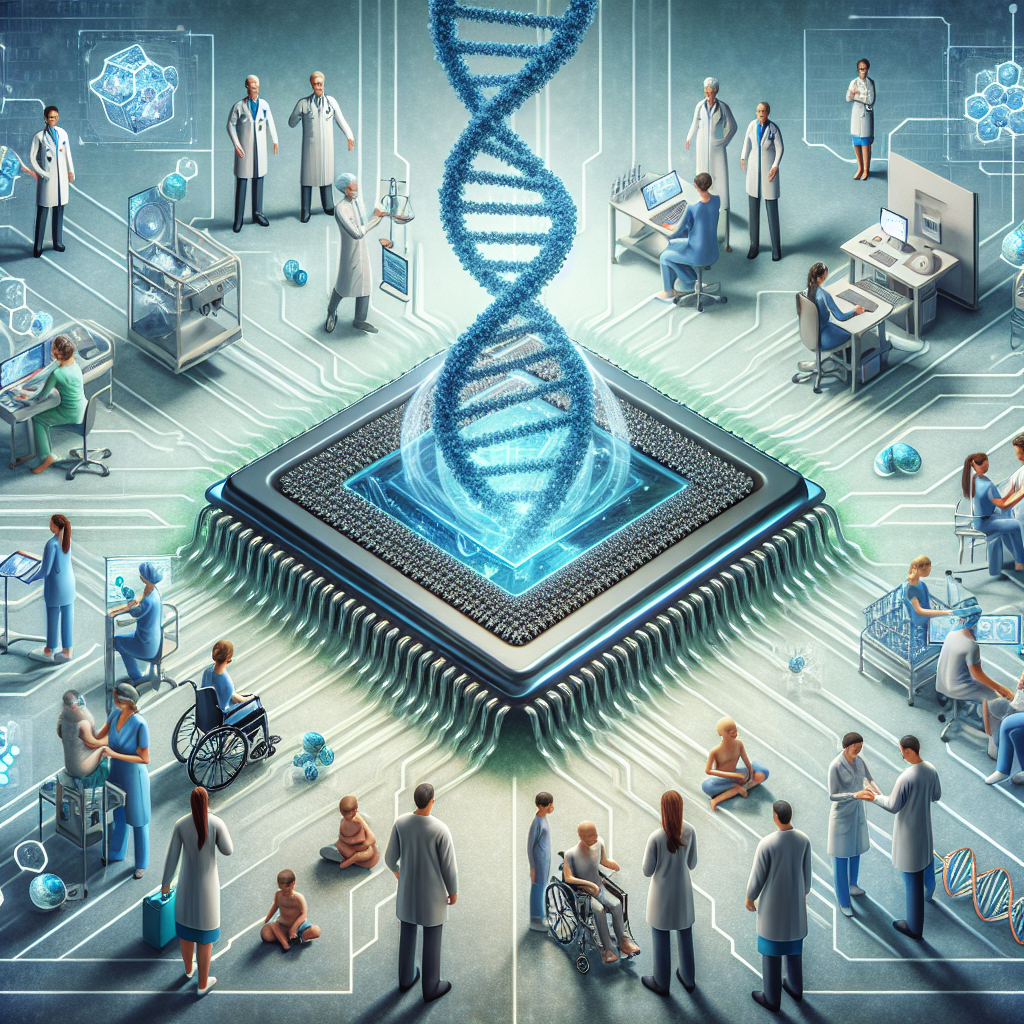The Impact of AI Software on Personalized Healthcare
Artificial intelligence (AI) has made significant advancements in recent years and has the potential to revolutionize the healthcare industry. One area where AI is having a major impact is in personalized healthcare. Personalized healthcare is an approach to medical treatment that takes into account individual variability in genes, environment, and lifestyle for each person. By utilizing AI software, healthcare providers can analyze vast amounts of data to tailor treatments and interventions to the specific needs of each patient.
AI software can analyze large datasets of patient information, including genetic data, medical history, and lifestyle factors, to identify patterns and trends that may not be apparent to human healthcare providers. This can lead to more accurate diagnoses, more effective treatment plans, and better outcomes for patients. In addition, AI software can help healthcare providers to predict and prevent diseases before they occur, allowing for early intervention and improved patient outcomes.
One of the key benefits of AI software in personalized healthcare is its ability to provide real-time monitoring and feedback to patients. For example, wearable devices equipped with AI algorithms can track a patient’s vital signs and alert them to any abnormalities or potential health risks. This can help patients to take proactive steps to improve their health and prevent the development of chronic conditions.
AI software can also assist healthcare providers in making more informed decisions about treatment options. By analyzing a patient’s genetic makeup, medical history, and other relevant data, AI software can recommend personalized treatment plans that are tailored to the individual’s specific needs. This can lead to more effective treatments, fewer adverse reactions, and better patient outcomes.
In addition to improving patient care, AI software can also help to streamline healthcare operations and reduce costs. By automating routine tasks such as data entry, scheduling, and billing, AI software can free up healthcare providers to focus on patient care and reduce administrative burden. This can lead to more efficient healthcare delivery, shorter wait times, and improved patient satisfaction.
Despite the many benefits of AI software in personalized healthcare, there are also some challenges and concerns that must be addressed. One of the main concerns is data privacy and security. AI software relies on vast amounts of patient data to make accurate predictions and recommendations, raising concerns about how this data is stored, accessed, and shared. Healthcare providers must ensure that patient data is kept secure and confidential to protect patient privacy.
Another challenge is the potential for bias in AI algorithms. AI software is only as good as the data it is trained on, and if this data is biased or incomplete, it can lead to inaccurate or unfair outcomes. Healthcare providers must be vigilant in ensuring that AI algorithms are trained on diverse and representative datasets to avoid bias and ensure fair treatment for all patients.
Despite these challenges, the potential benefits of AI software in personalized healthcare are vast. By harnessing the power of AI, healthcare providers can deliver more personalized, effective, and efficient care to their patients. As the technology continues to advance, we can expect to see even greater improvements in patient outcomes and healthcare delivery.
FAQs
Q: How does AI software in personalized healthcare benefit patients?
A: AI software in personalized healthcare can benefit patients by providing more accurate diagnoses, tailoring treatment plans to individual needs, predicting and preventing diseases, providing real-time monitoring and feedback, and improving patient outcomes.
Q: What are some challenges of using AI software in personalized healthcare?
A: Some challenges of using AI software in personalized healthcare include data privacy and security concerns, the potential for bias in AI algorithms, and the need for healthcare providers to ensure that AI algorithms are trained on diverse and representative datasets.
Q: How can healthcare providers ensure that AI algorithms are unbiased?
A: Healthcare providers can ensure that AI algorithms are unbiased by training them on diverse and representative datasets, monitoring for biases in the data and algorithms, and implementing safeguards to prevent bias in decision-making.
Q: What are some examples of AI software in personalized healthcare?
A: Some examples of AI software in personalized healthcare include wearable devices that track vital signs and provide real-time feedback to patients, AI algorithms that analyze genetic data to recommend personalized treatment plans, and AI systems that predict and prevent diseases before they occur.

